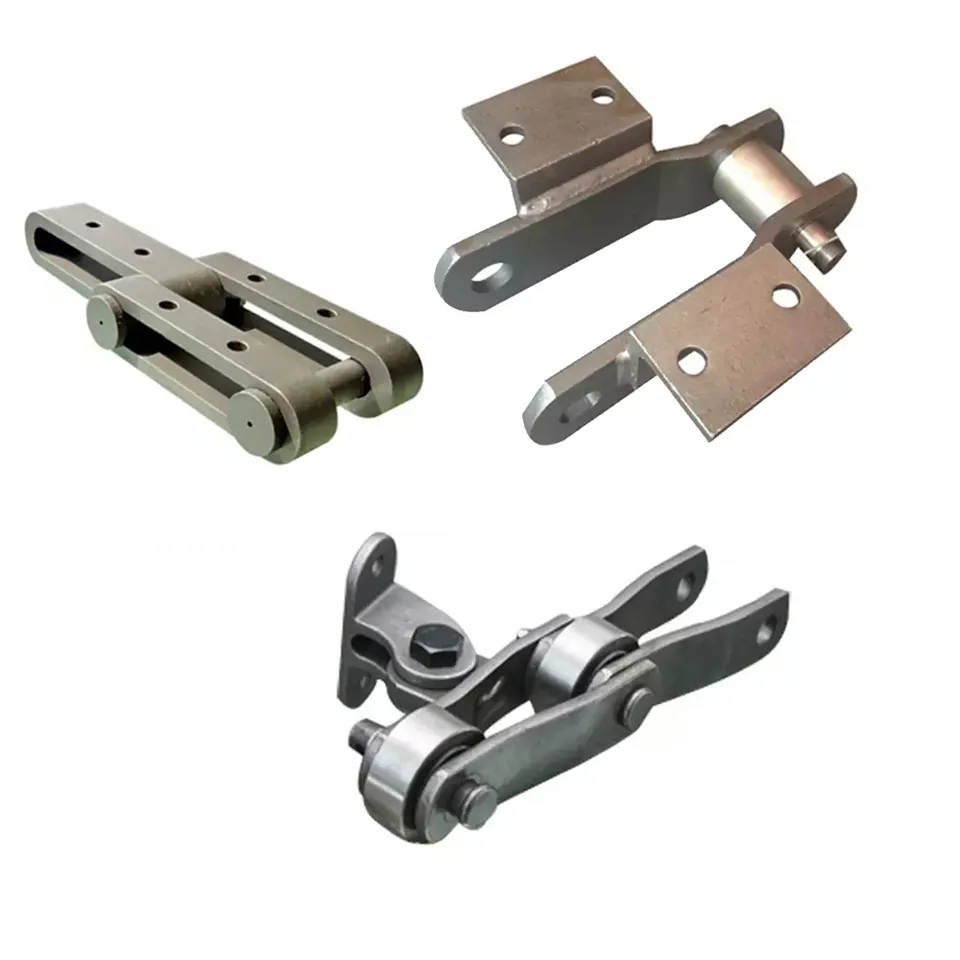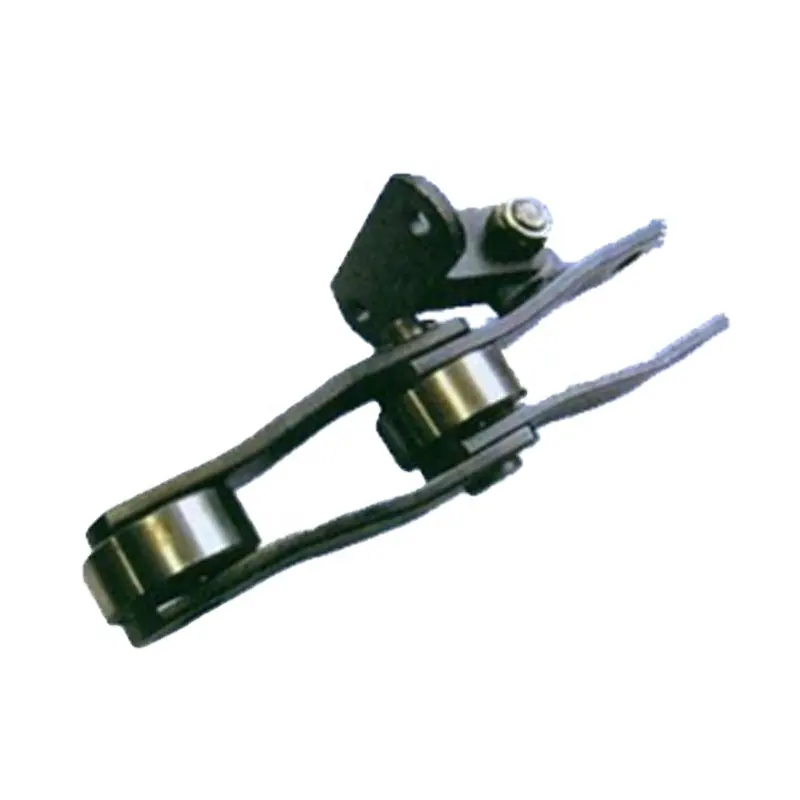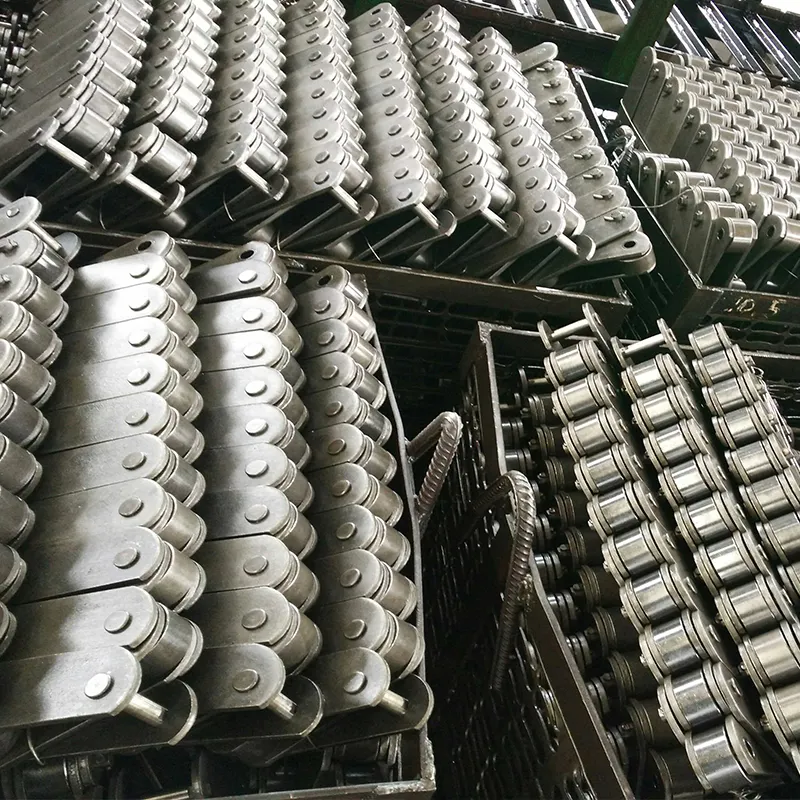Product Description
Conveyor Chains For Steel Mill:
Chain No.: P500, P500F1, P650, P625, P1000
Pitch: 500mm, 650mm, 625mm, 1000mm.
For Free Samples
Prompt Delivery
Green Product
International Approvals
Experienced Staff
Why choose us?
1. HangZhou Xihu (West Lake) Dis.hua Chain Group Co., Ltd established in 1991, we have 5 subsidiaries in China and also have 6 subsidiaries abroad;
2. We covering a production area of 200, 100 square meters, have more than 1, 800 sets of advanced equipment and over 3, 100 highly skilled employees, the annual production capacity has exceeded 20, 000, 000 meters;
3. We specialized in producing all kinds of standard chains and special chains, such as A or B series chains, driving chains, conveyor chains, dragging chains, agricultural chains and so on;
4. We have obtained ISO9001, ISO14001, ISO16969, AAA and API certificates.
The company is specialized in producing all kinds of standard chains and special chains, E. G. A or B series chains, automobile chains, stainless steel chains, combine harvester chains, heavy-duty cranked link transmission chains, stereo garage chains and maintenance-free chains etc. In recent years, it invests the capital and depends on the improvement of technology to accelerate the step of new product development and the step of technology reform. It intends to produce high strength and precision chains in order to meet requirements of the domestic and overseas markets. We have enclosed our catalog, which introduces our company in detail and covers the main products we supply at present.
Should any of these items be of interest to you, please let us know. We will be happy to give you a quotation CHINAMFG receipt of your detailed requirements.
We look CHINAMFG to receiving your enquires soon.
| Usage: | Transportation Chain |
|---|---|
| Material: | Carbon Steel |
| Surface Treatment: | Oil Blooming |
| Feature: | Heat Resistant |
| Color: | Solid Color |
| Structure (For Chain): | Roller Chain |
| Customization: |
Available
| Customized Request |
|---|

How do mill chains handle misalignment between sprockets in conveyor systems?
Mill chains are designed to handle moderate misalignment between sprockets in conveyor systems. Here’s how they manage misalignment effectively:
Flexible Construction:
Mill chains are built with a flexible construction that allows them to accommodate slight misalignment between sprockets. The chain links and pins have some degree of movement, which helps in absorbing minor misalignment without causing excessive wear or stress on the chain components.
Side Bow Effect:
Mill chains exhibit a phenomenon known as the “side bow” effect, which allows them to adapt to misalignment. The side bow effect refers to the lateral movement of the chain as it wraps around the sprocket. This lateral movement helps the chain adjust to the sprocket’s position, even if it is slightly misaligned.
Sprocket Tooth Design:
The shape of the sprocket teeth can also influence how well the chain handles misalignment. Sprockets with properly designed teeth, such as a standard roller chain sprocket, can aid in reducing the impact of misalignment on the chain’s performance.
Regular Maintenance:
To ensure that mill chains continue to handle misalignment effectively, regular maintenance is essential. Periodic inspections and lubrication can help identify and rectify any misalignment issues, preventing excessive wear and potential chain failure.
Limitations:
While mill chains can tolerate some misalignment, excessive misalignment should be avoided. Prolonged and severe misalignment can lead to accelerated wear and reduce the chain’s overall lifespan. In cases where misalignment is significant, it is crucial to address the root cause of the misalignment and make the necessary adjustments to prevent further chain damage.
Overall, mill chains’ ability to handle misalignment in conveyor systems makes them suitable for applications where minor sprocket misalignment can occur due to system variations or environmental factors.

Can mill chains be used in petrochemical processing and refineries?
Yes, mill chains can be used in petrochemical processing and refineries, but the selection of the appropriate chain type is crucial to ensure optimal performance and safety in these demanding environments. In petrochemical processing and refineries, mill chains are often employed in various applications, including material handling, conveying, and elevating tasks.
The key considerations when using mill chains in petrochemical processing and refineries include:
- Corrosion Resistance: Petrochemical environments can be highly corrosive due to exposure to chemicals and moisture. Therefore, selecting mill chains made from corrosion-resistant materials, such as stainless steel or plastic, is essential to prevent premature wear and failure.
- Temperature Resistance: Petrochemical processes often involve high temperatures, so it’s important to choose mill chains that can withstand the specific temperature range of the application without losing their structural integrity or mechanical properties.
- Chemical Compatibility: The mill chains must be chemically compatible with the substances being handled in the petrochemical processes. Compatibility ensures that the chains won’t react with the chemicals, preventing contamination or degradation.
- Load Capacity: Depending on the application, mill chains must be capable of handling the required loads and forces present in the petrochemical processing and refining operations.
- Reliability: In critical processes within petrochemical facilities, reliable mill chains are essential to ensure uninterrupted operation and prevent costly downtime.
- Safety: Safety is of utmost importance in petrochemical processing. Employing mill chains with proper safety features, such as overload protection and anti-jump guides, is vital to minimize the risk of accidents.
Regular maintenance and inspection of the mill chains are also necessary to ensure their continued performance and to detect any signs of wear or damage promptly. Overall, when chosen and used correctly, mill chains can effectively meet the demands of petrochemical processing and refineries, providing a durable and efficient solution for material handling and conveying needs.

Can mill chains be used in the mining and mineral processing industries?
Yes, mill chains are commonly used in the mining and mineral processing industries. These chains are designed to handle heavy loads and harsh operating conditions, making them well-suited for various applications in this sector. Here’s how mill chains are utilized in mining and mineral processing:
1. Material Handling: In mining operations, mill chains are used for material handling tasks such as transporting ores, rocks, and other raw materials. They are often employed in conveyor systems to move bulk materials from one location to another efficiently and reliably.
2. Crushing and Grinding: Mill chains play a crucial role in the crushing and grinding processes, where large chunks of minerals or ores are broken down into smaller particles for further processing. These chains are used in crushing machines and ball mills to ensure the smooth movement of materials throughout the equipment.
3. Agglomeration: Mill chains are used in agglomeration processes, where fine particles are combined to form larger particles or pellets. These chains are vital for maintaining the integrity of the agglomerates and ensuring proper handling during the agglomeration process.
4. Heap Leaching: In heap leaching operations, mill chains are used to stack and reclaim heaps of crushed ore, allowing for efficient leaching of valuable minerals from the ore.
5. Tailings Management: Mill chains are also used in tailings management systems, where they assist in the transportation and disposal of tailings, which are the waste materials produced during mineral processing.
6. Robust and Durable: Mining and mineral processing operations demand equipment that can withstand heavy loads, abrasion, and harsh environments. Mill chains are designed with these factors in mind, ensuring their durability and reliability even in challenging conditions.
Overall, mill chains are a critical component in the mining and mineral processing industries, contributing to the efficiency and productivity of various processes involved in extracting and processing valuable minerals.


editor by CX 2023-09-18